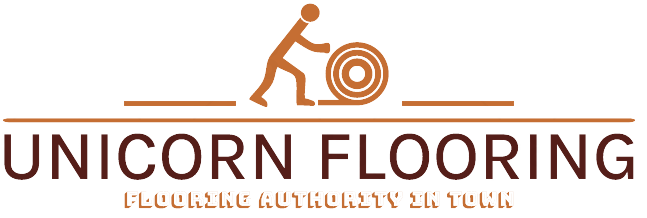Food Processing Plant Flooring in Pakistan
Food safety begins from the ground up — literally. In Pakistan’s rapidly growing food and beverage industry, flooring systems in food processing plants play a crucial role in maintaining hygiene, safety, and operational efficiency.
Whether it’s a dairy factory, meat processing plant, beverage bottling facility, or a bakery, the flooring must meet stringent hygiene standards, endure heavy traffic, and withstand chemical and thermal stress.
This blog provides a complete overview of food processing plant flooring in Pakistan, including types, features, cost, and installation methods — helping manufacturers choose the most reliable flooring for their production facilities.
Importance of Flooring in Food Processing Plants
Flooring in food processing environments is more than just a walking surface. It’s an integral part of maintaining a safe, clean, and efficient workspace.
Here’s why it matters:
- Hygiene Compliance: Floors must be easy to clean, non-porous, and resistant to bacteria growth.
- Slip Resistance: Prevents accidents in wet or greasy conditions.
- Durability: Must withstand forklifts, heavy machinery, and thermal shocks.
- Chemical Resistance: Should tolerate cleaning agents, oils, and food acids.
- Seamless Finish: Eliminates joints where contaminants can hide.
In Pakistan, where temperature variation and humidity levels are high, these requirements become even more critical — especially for facilities operating 24/7.
Common Flooring Challenges in Food Plants
Food production facilities face multiple operational stresses that can damage ordinary flooring. Some of the most common issues include:
- Thermal shock from hot water or steam cleaning.
- Chemical attack from acids, oils, and sanitizers.
- Impact damage due to dropped tools and machinery.
- Cracking or delamination from moisture or substrate movement.
- Bacterial contamination in porous or cracked surfaces.
Therefore, standard concrete or ceramic tiles are often unsuitable for food plant environments — specialized industrial-grade resin flooring systems are required.
Ideal Features of Food Processing Plant Flooring
Before selecting a flooring system, it’s essential to look for these key performance features:
Hygienic and Seamless Surface – No joints or grout lines to harbor bacteria.
Chemical Resistance – Tolerates acids, alkalis, and sanitizers used in cleaning.
Slip Resistance – Prevents accidents in wet or greasy environments.
Thermal Resistance – Withstands temperature fluctuations and hot cleaning cycles.
Load Bearing Capacity – Handles forklifts, pallet jacks, and heavy machinery.
Low Maintenance – Easy to clean, long-lasting surface requiring minimal repair.
Non-Toxic and Food Safe – Complies with HACCP and ISO food safety standards.
Types of Food Processing Plant Flooring in Pakistan
There are several industrial-grade flooring options available in Pakistan, each with its own set of advantages depending on the type of food facility and production conditions.
Let’s explore the most popular ones:
Epoxy Flooring
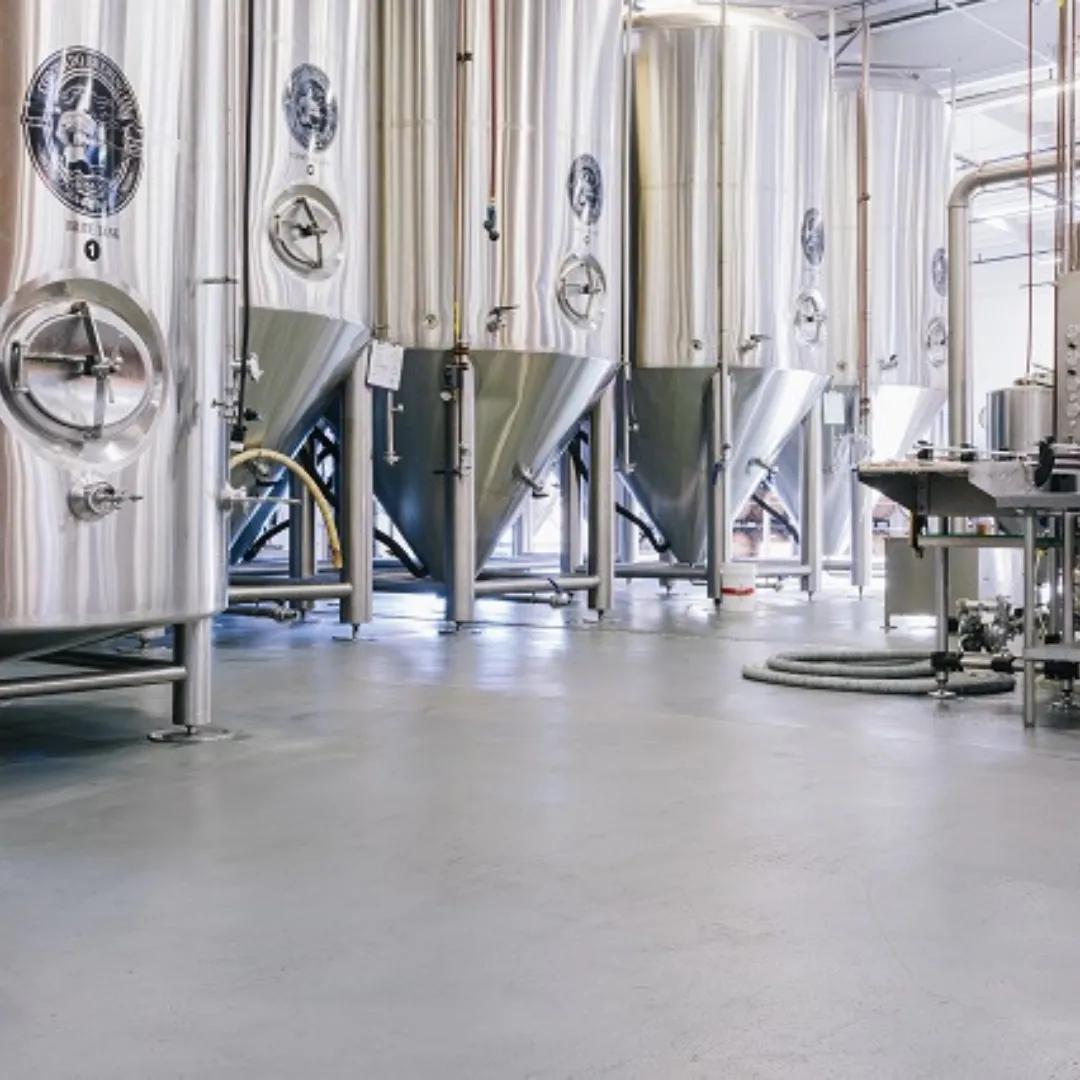

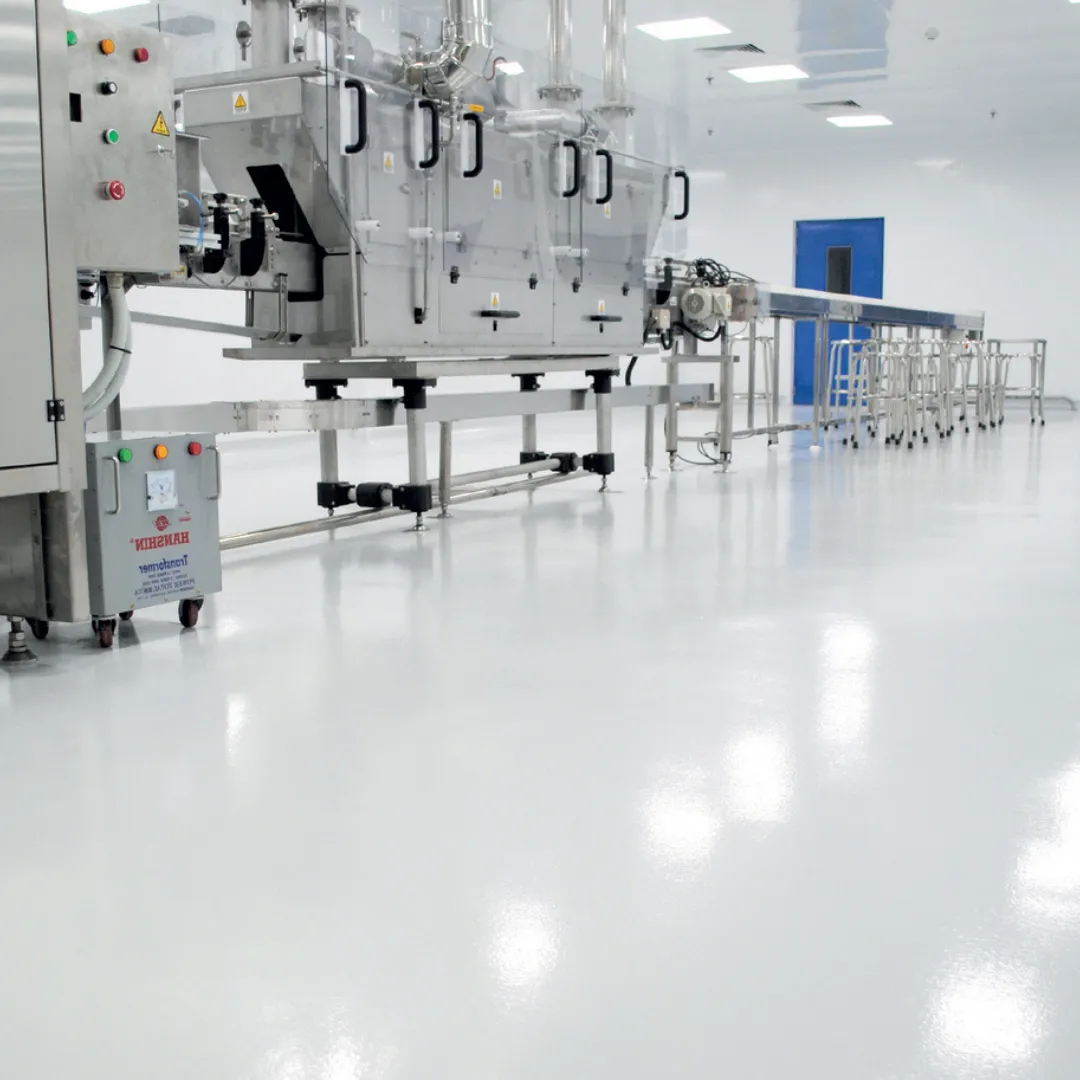
Epoxy flooring is one of the most widely used systems in food processing plants across Pakistan. It provides a seamless, chemical-resistant, and durable surface ideal for wet and dry processing areas.
Key Features
- Seamless and non-porous finish
- Resistant to chemicals, oils, and fats
- Glossy and easy-to-clean surface
- Cost-effective and fast installation
Best For
Packaging areas, dry food zones, cold storage rooms, warehouses
PU (Polyurethane) Flooring
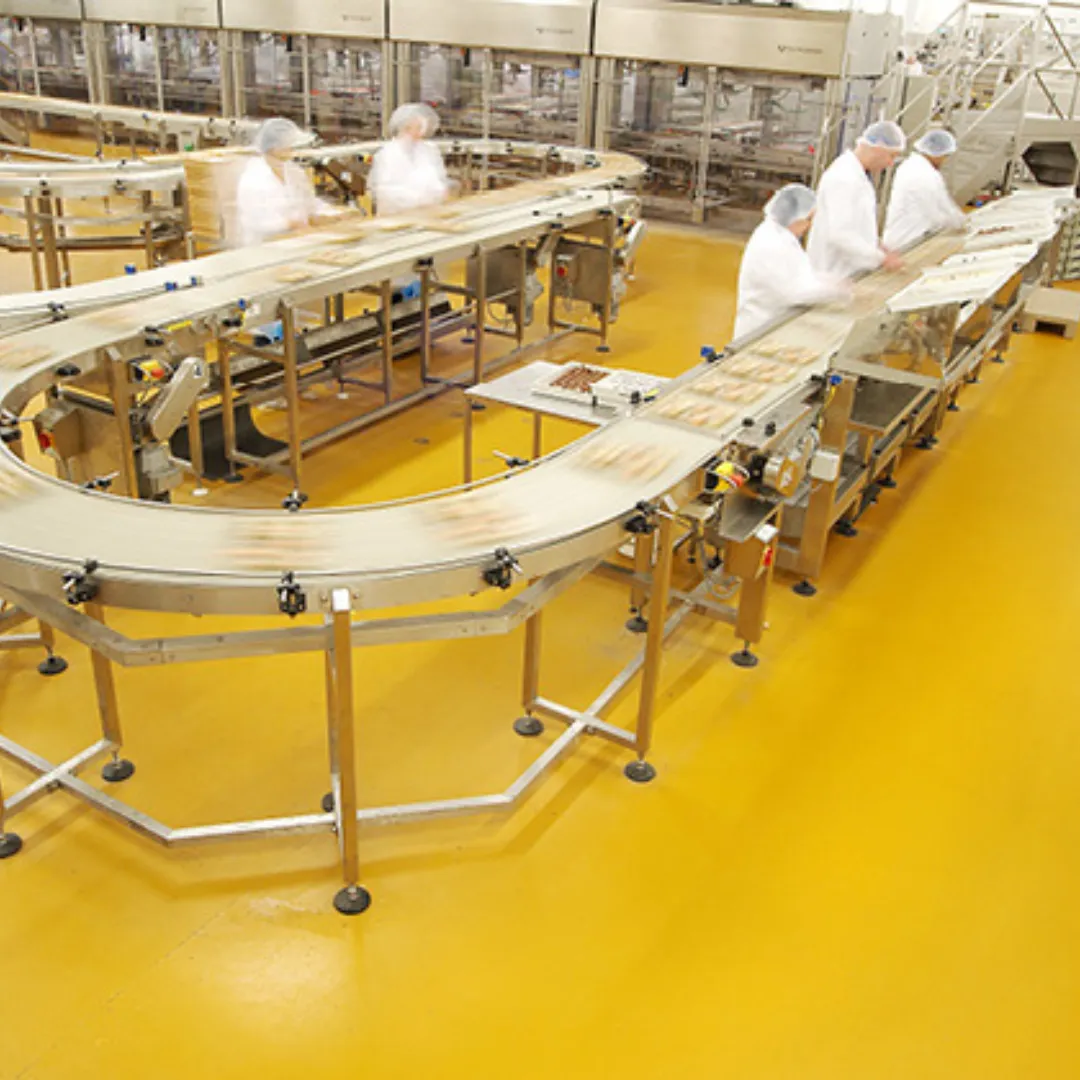
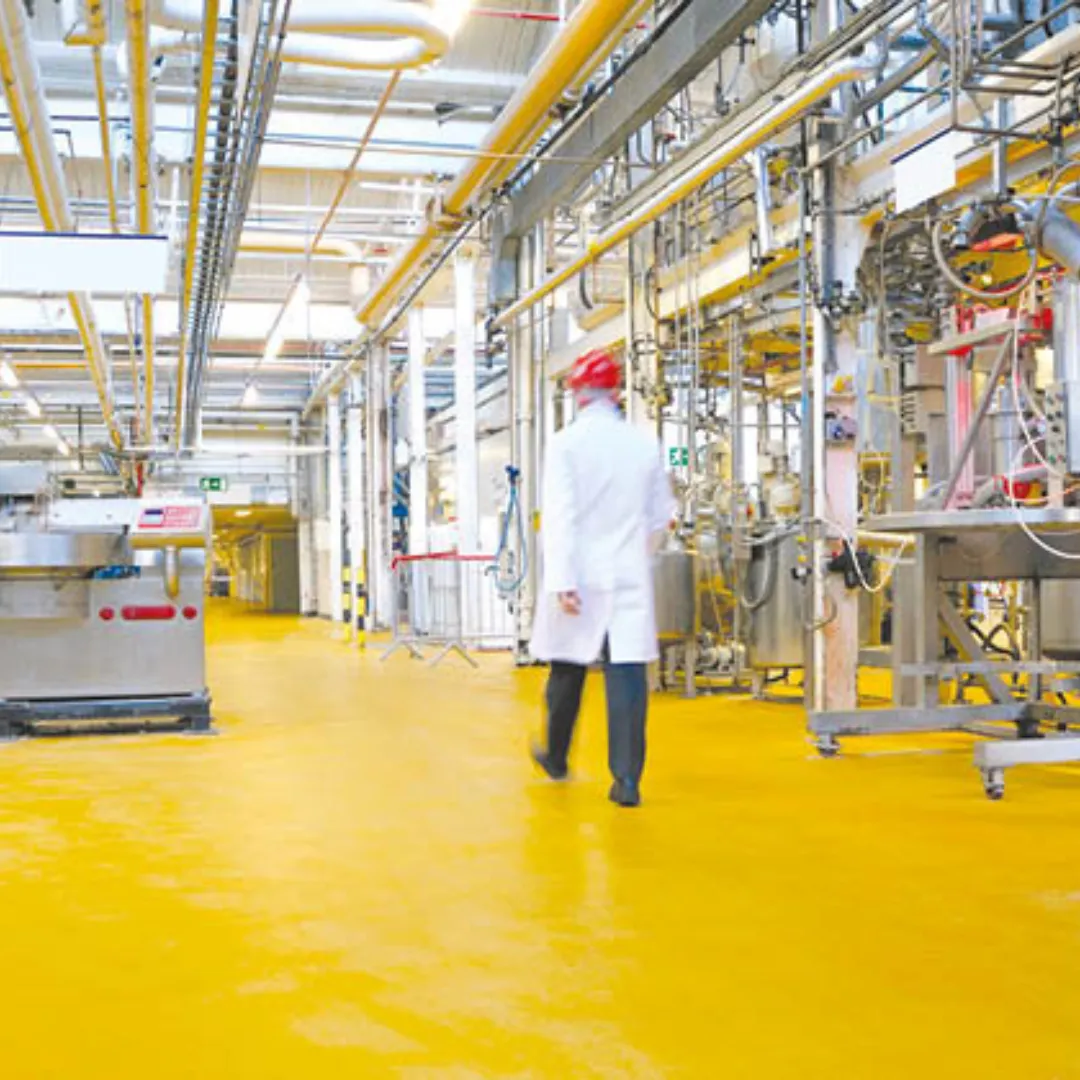

Polyurethane flooring (PU) is specifically designed for food and beverage industries where extreme temperatures, moisture, and hygiene are major concerns.
PU concrete systems can tolerate both high heat and freezing conditions, making them perfect for bakeries, dairies, and meat plants.
Key Features
- Excellent thermal shock resistance
- High chemical and impact resistance
- Anti-slip and anti-bacterial properties
- Long lifespan (15–20 years)
Best For
Wet processing areas, meat and poultry zones, dairies, beverage production
PU Concrete / Ucrete Flooring
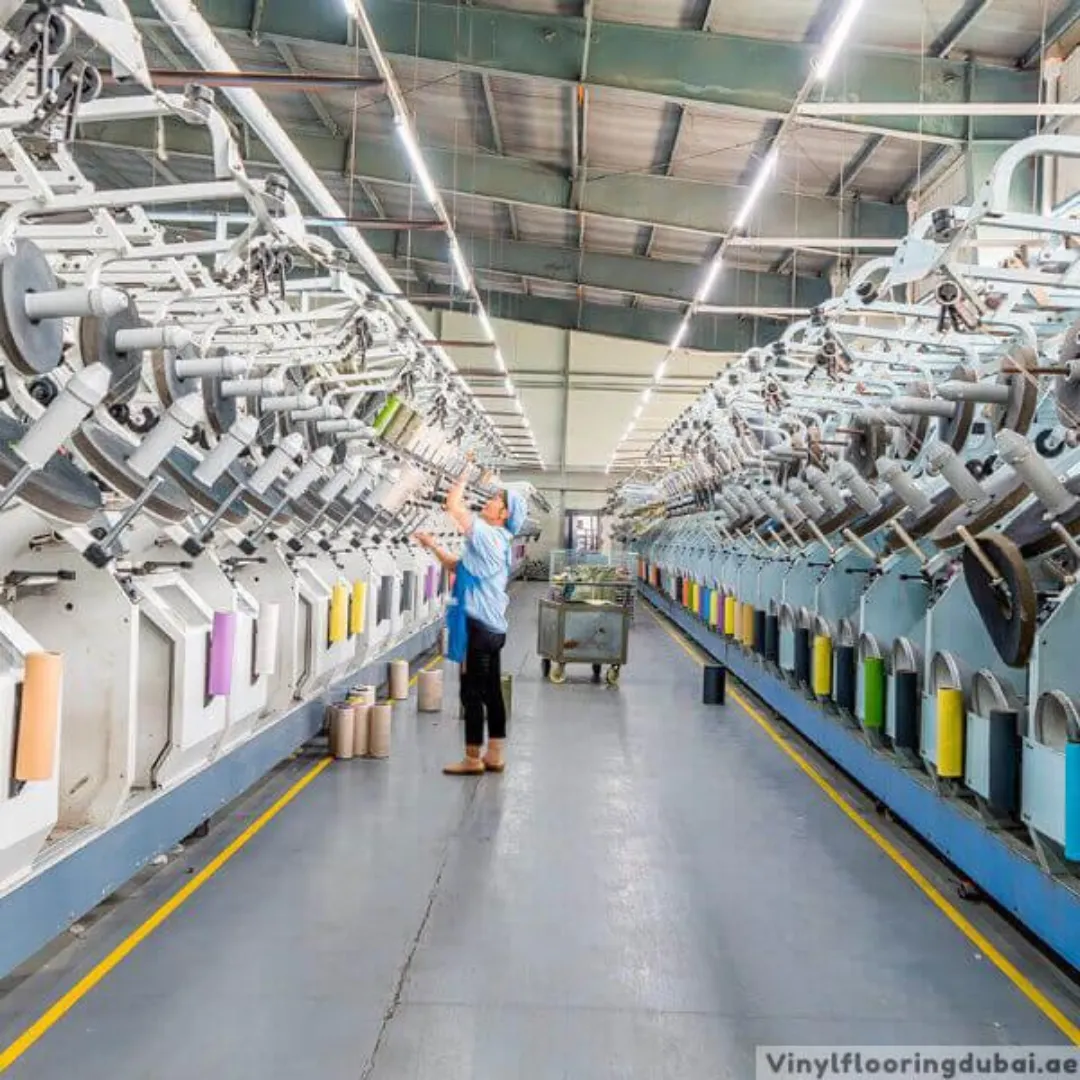
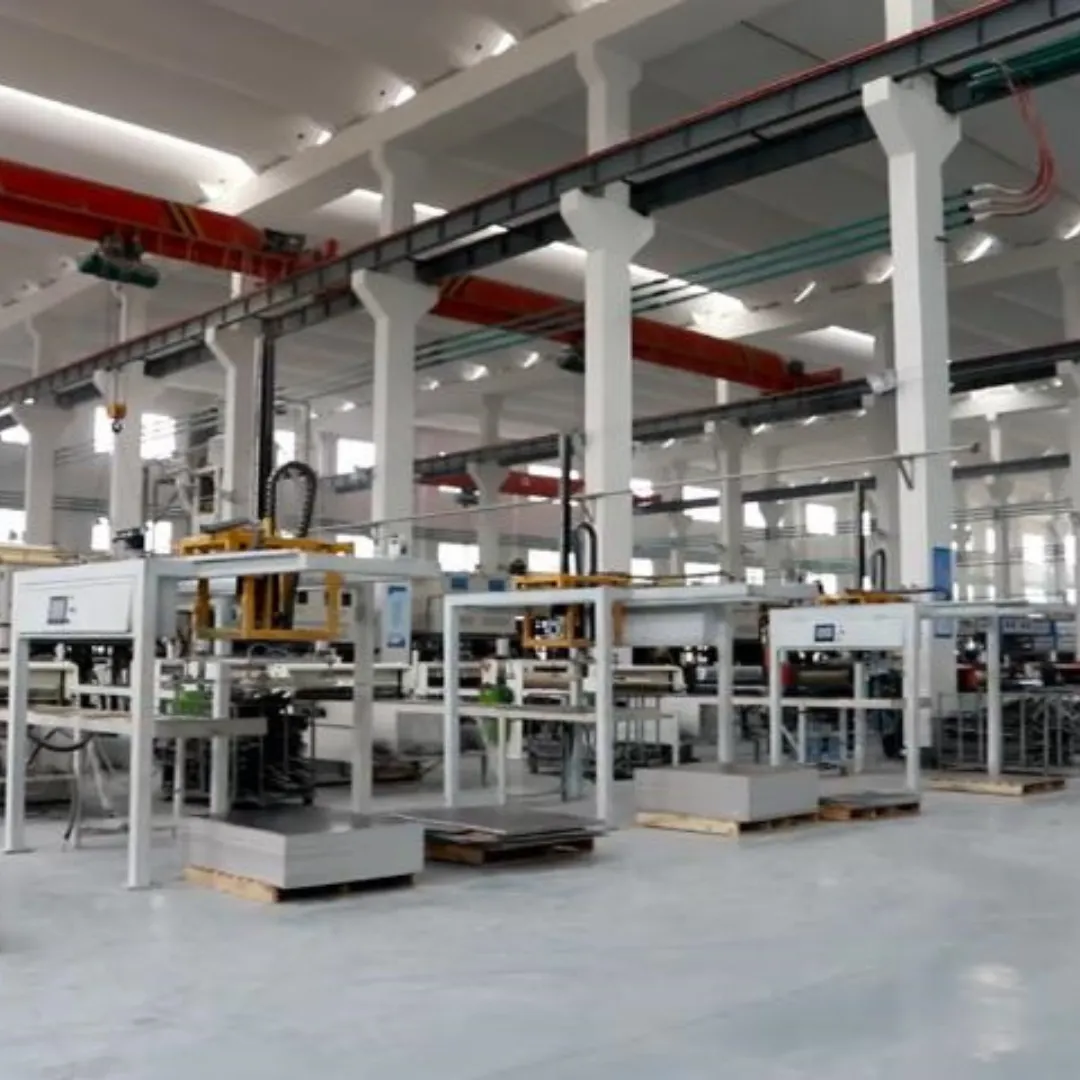
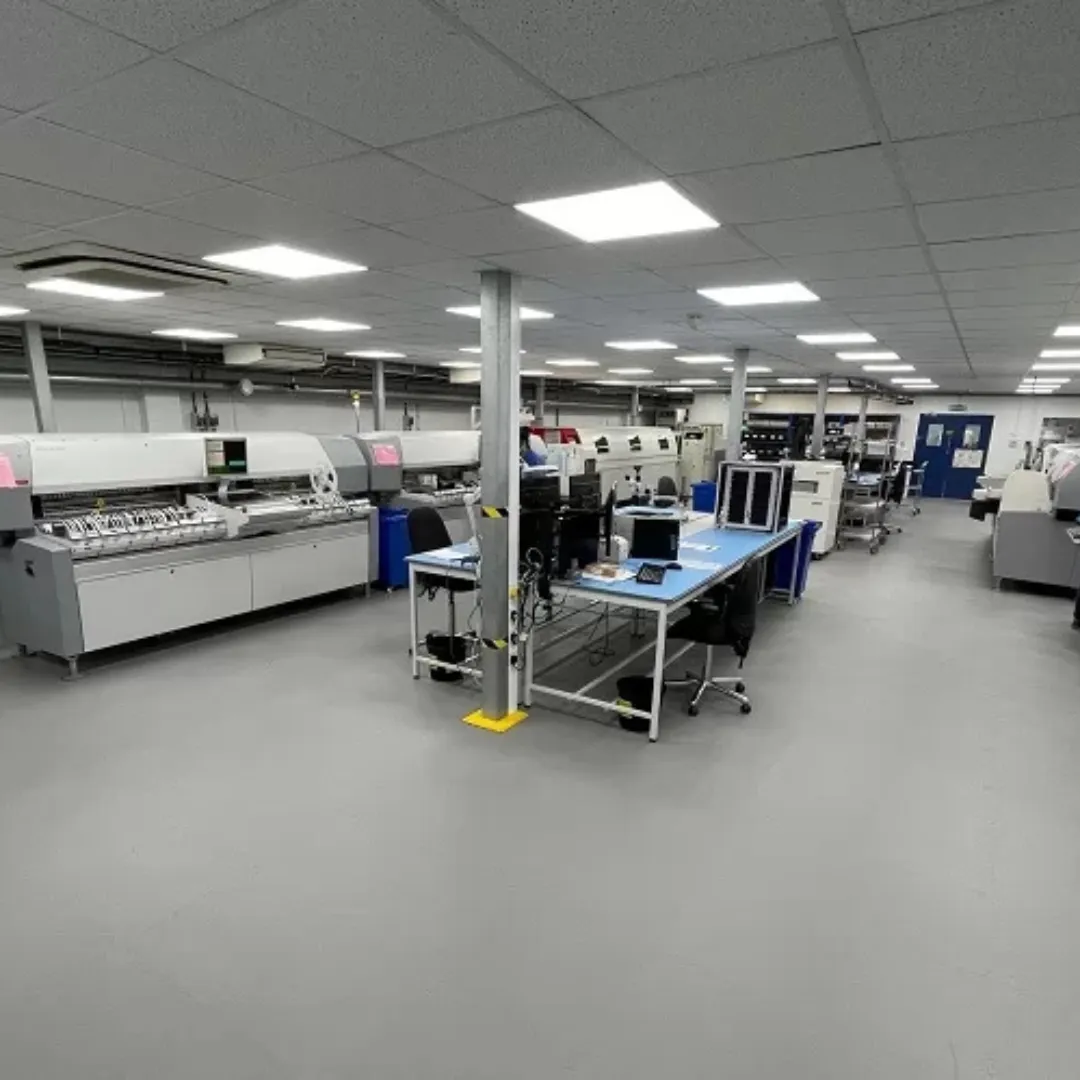
This is a heavy-duty variant of PU flooring, known as Ucrete flooring, used in international food factories. It’s a hybrid of polyurethane and concrete, giving maximum durability and hygiene.
Key Features
- Can handle steam cleaning up to 120°C
- Withstands heavy machinery and forklift traffic
- Resistant to lactic acid, fats, and chemicals
- Impervious and non-slip surface
Best For
Meat processing, dairy, fish processing, beverage filling areas
Anti-Slip Industrial Tiles
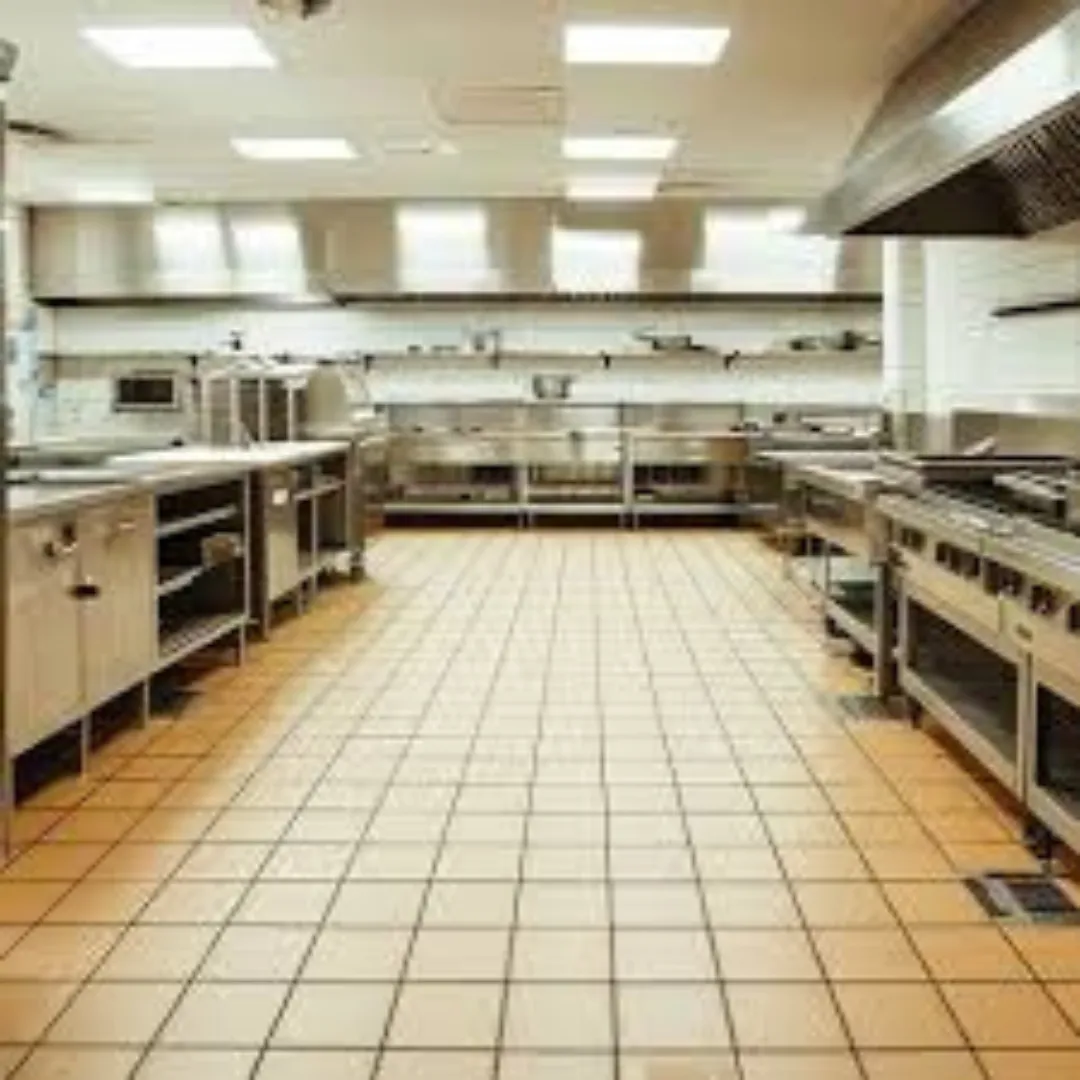


In some facilities, industrial-grade ceramic or vitrified tiles are used. While they are durable and cost-effective, they require regular maintenance and proper joint sealing.
Key Features
- Cost-efficient
- Scratch and wear resistant
- Easy to clean if properly sealed
Limitations
Grout lines can harbor bacteria, making it less ideal for wet zones.
Best For
Dry food packaging, warehouses, low-risk areas
MMA (Methyl Methacrylate) Flooring
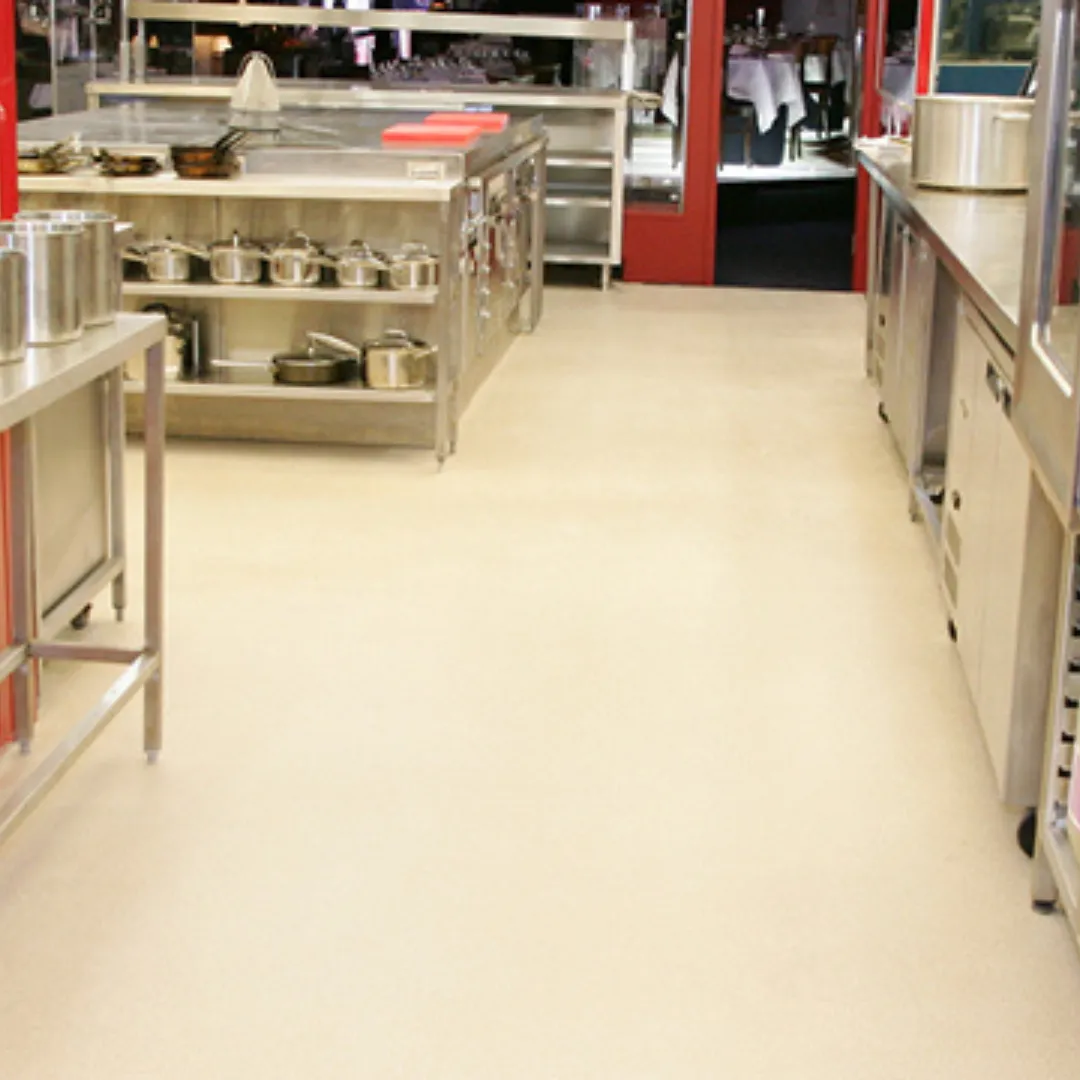
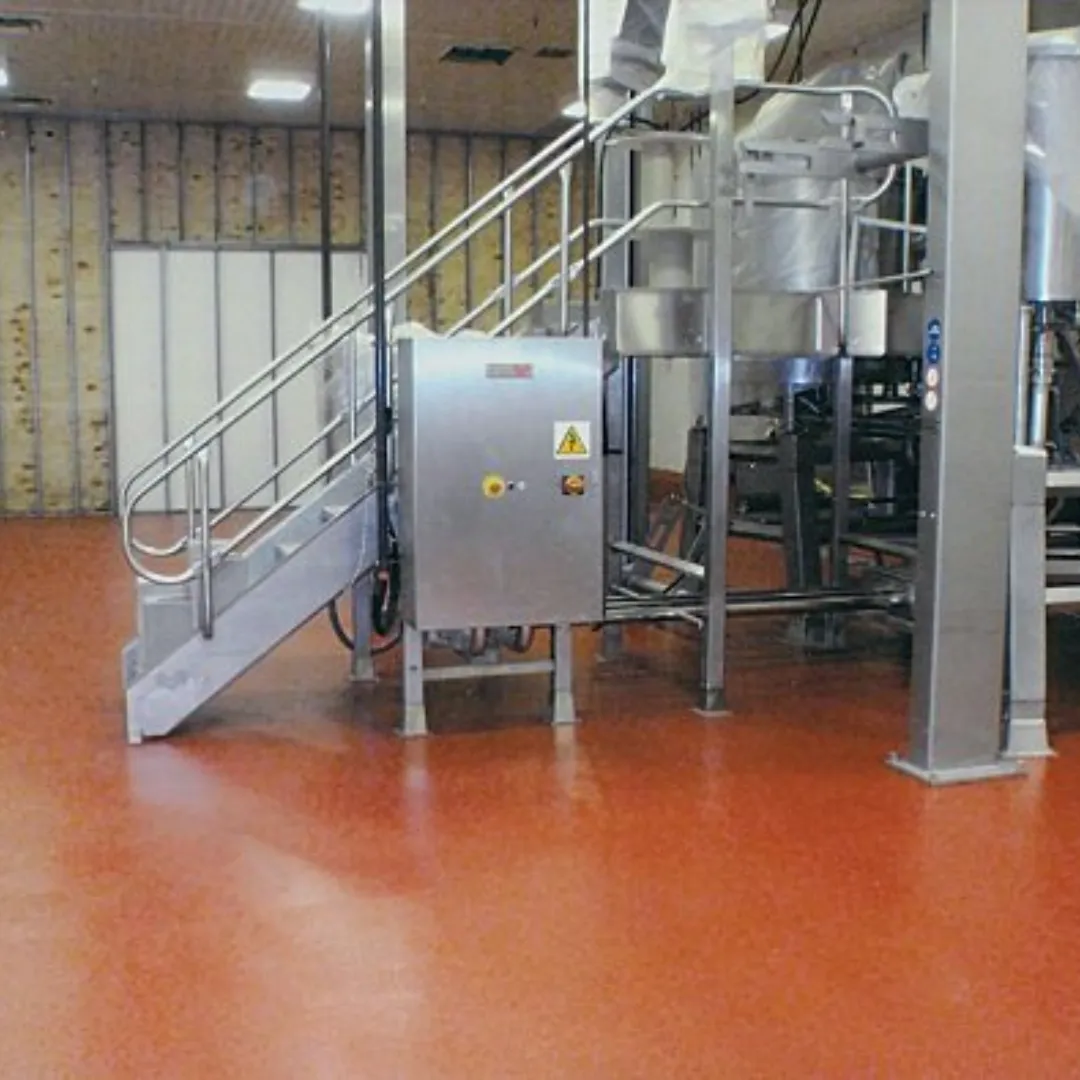

MMA flooring is a fast-curing resin flooring option ideal for facilities that cannot afford long downtime. It hardens within hours, allowing production to resume quickly.
Key Features
- Fast installation and curing (within 2–3 hours)
- Seamless, smooth finish
- Excellent resistance to chemicals and abrasion
Best For
Small production units, maintenance zones, and renovation projects
Estimated Cost of Food Processing Plant Flooring in Pakistan
Below is a detailed cost comparison of different flooring types commonly used in Pakistan’s food and beverage facilities:
| Flooring Type | Estimated Cost (PKR/sq. ft.) | Lifespan | Maintenance | Best For |
|---|---|---|---|---|
| Epoxy Flooring | 800 – 1,800 | 8–12 years | Low | Packaging & Dry Processing Areas |
| PU Flooring | 1,200 – 2,800 | 12–18 years | Low | Wet Processing & Production Zones |
| PU Concrete / Ucrete Flooring | 2,000 – 3,500 | 15–25 years | Very Low | Dairies, Meat & Beverage Plants |
| MMA Flooring | 1,800 – 3,000 | 10–15 years | Low | Fast-Track Renovation Projects |
| Industrial Anti-Slip Tiles | 600 – 1,200 | 8–10 years | Medium | Warehouses, Dry Zones |
Installation Process of Food Processing Plant Flooring
Professional installation is crucial to achieve a seamless, long-lasting surface. Here’s an overview of the general installation process:
Surface Preparation
- Remove old coatings or contaminants.
- Repair cracks and ensure the substrate is level.
- Conduct moisture and strength testing.
Priming
Apply primer to improve adhesion between substrate and flooring material.
Application of Base Layer
Pour and spread the resin (epoxy/PU) evenly using trowels or rollers.
Reinforcement (Optional)
Add quartz sand or aggregates for slip resistance.
Topcoat Application
Apply final coating with desired finish (matte, glossy, or anti-slip).
Curing and Inspection
- Allow curing for 24–72 hours before opening to traffic.
- Inspect surface for pinholes or unevenness.
Maintenance Tips for Food Plant Flooring
Regular cleaning and maintenance are vital for hygiene and durability:
- Use neutral pH detergents for cleaning.
- Avoid harsh acids or solvents.
- Regularly inspect joints and corners for wear.
- Reapply sealants or topcoats every few years.
- Use non-metallic tools to prevent surface scratching.
Advantages of Using Industrial Resin Flooring in Food Plants
a. Hygienic and Food Safe
Epoxy and PU floors are seamless and non-porous, eliminating bacterial growth.
b. Long-Term Cost Efficiency
Though initially expensive, these floors last up to 20 years with minimal maintenance.
c. Aesthetic and Professional Look
Available in glossy or matte finishes for a clean, professional appearance.
d. Customizable
Can be installed with different textures, colors, and slip-resistance levels.
e. Resistant to Harsh Conditions
Handles mechanical, chemical, and thermal stresses without cracking or peeling.
Industry Applications in Pakistan
Food processing plant flooring is used across various sectors:
- Dairy Processing Units – Requires chemical and thermal resistance.
- Meat and Poultry Plants – Needs anti-slip and anti-bacterial floors.
- Beverage Bottling Facilities – Must resist sugar, acids, and cleaning agents.
- Frozen Food Factories – Flooring must perform under freezing temperatures.
- Confectionery and Bakery Plants – Smooth, non-stick surfaces are essential.
- Packaging and Warehouses – Durable, impact-resistant surfaces for heavy loads.
Compliance with Food Safety Standards
Flooring systems in food industries must comply with international hygiene and safety regulations, such as:
- HACCP (Hazard Analysis Critical Control Point)
- ISO 22000 Food Safety Management System
- FDA and EU Standards for Food Contact Surfaces
Reputable Pakistani flooring contractors offer certified systems that meet these standards, ensuring global food safety compliance.
Popular Cities for Food Plant Flooring Installation
Demand for industrial-grade flooring is high in:
- Karachi – Major hub for seafood, meat, and beverage factories.
- Lahore – Numerous confectionery, dairy, and snack manufacturers.
- Faisalabad – Textile food-related factories and dairy plants.
- Multan – Fruit and juice processing industries.
- Islamabad / Rawalpindi – Packaged food and beverage plants.
Environmental Considerations
Modern resin floors are eco-friendly and low in VOCs (Volatile Organic Compounds), making them safe for both workers and food products. Some systems also use recycled aggregates, contributing to sustainability goals.
Why Choose Professional Installers
Hiring a professional flooring contractor ensures:
- Correct surface preparation
- Proper curing and thickness application
- Compliance with food-grade standards
- Warranty and after-sales maintenance
Companies in Pakistan now offer turnkey flooring solutions with imported materials from Europe and the Middle East to meet industry standards.
Future Trends in Food Processing Flooring in Pakistan
The flooring industry is evolving with new technologies, including:
- Antimicrobial resin coatings for enhanced hygiene
- Smart flooring with temperature and moisture monitoring
- Rapid-cure systems for 24-hour installations
- Eco-friendly materials reducing carbon footprint
As Pakistan’s food export market expands, these innovations will become standard requirements for new processing plants.
Conclusion
Choosing the right flooring for your food processing plant in Pakistan is vital for ensuring hygiene, durability, and compliance with food safety standards.
Among all available options, PU concrete (Ucrete) and Epoxy flooring systems stand out as the most durable and hygienic solutions, offering long-term performance even in harsh industrial environments.
Whether you’re setting up a new food plant or upgrading an existing one, investing in high-quality industrial flooring will improve safety, reduce downtime, and enhance productivity.
FAQ’S
What is the best flooring for a food processing plant in Pakistan?
PU concrete (Ucrete) and epoxy flooring are the best options due to their seamless, durable, and hygienic properties.
How much does food processing plant flooring cost in Pakistan?
Prices range from PKR 800 to 3,500 per sq. ft., depending on material type, area size, and installation requirements.
How long does food-grade epoxy or PU flooring last?
With proper maintenance, epoxy and PU floors can last 10 to 20 years or more in industrial environments.
Are these flooring types compliant with food safety standards?
Yes. PU and epoxy flooring systems comply with HACCP, ISO 22000, and international food safety standards.
